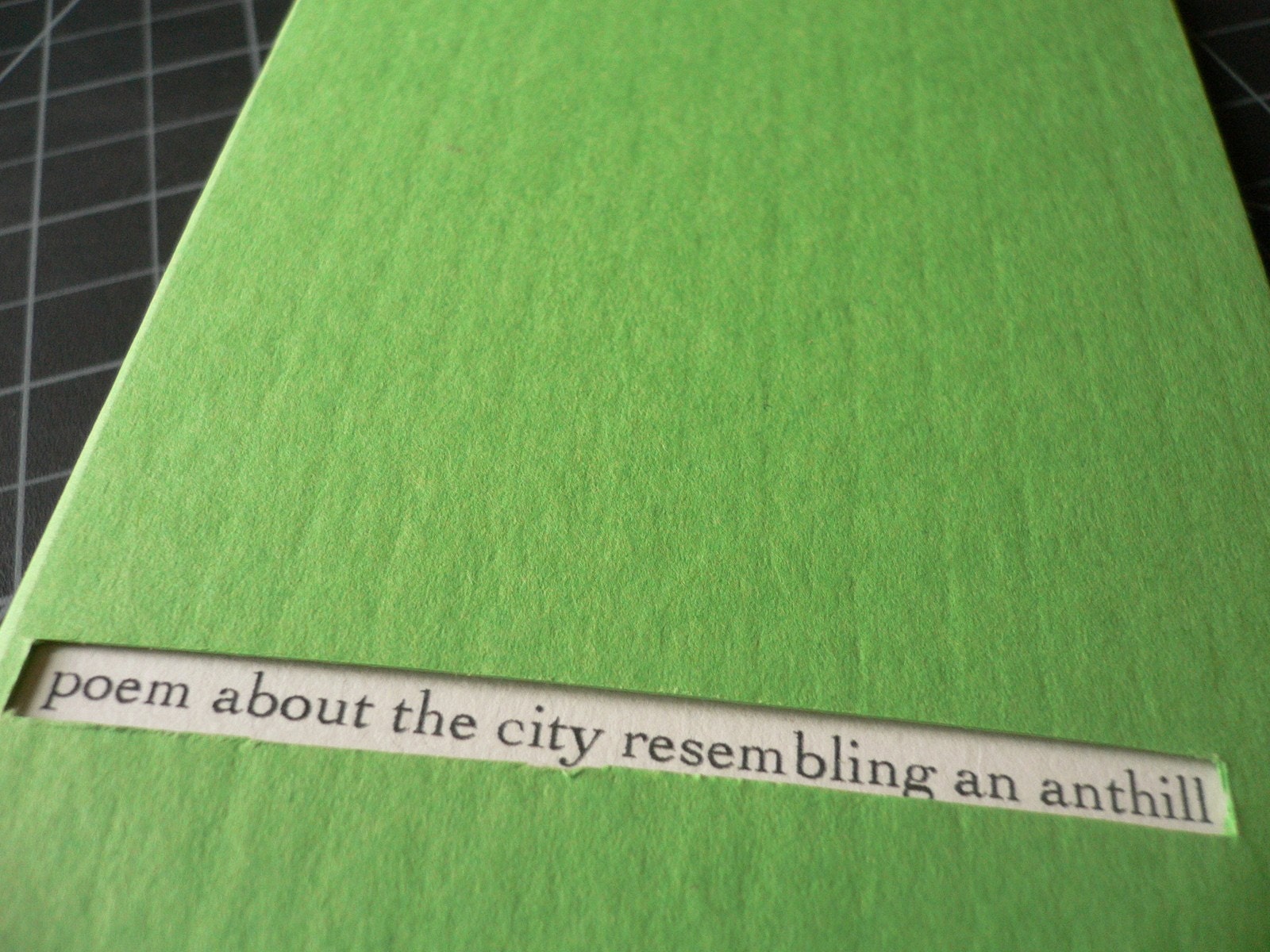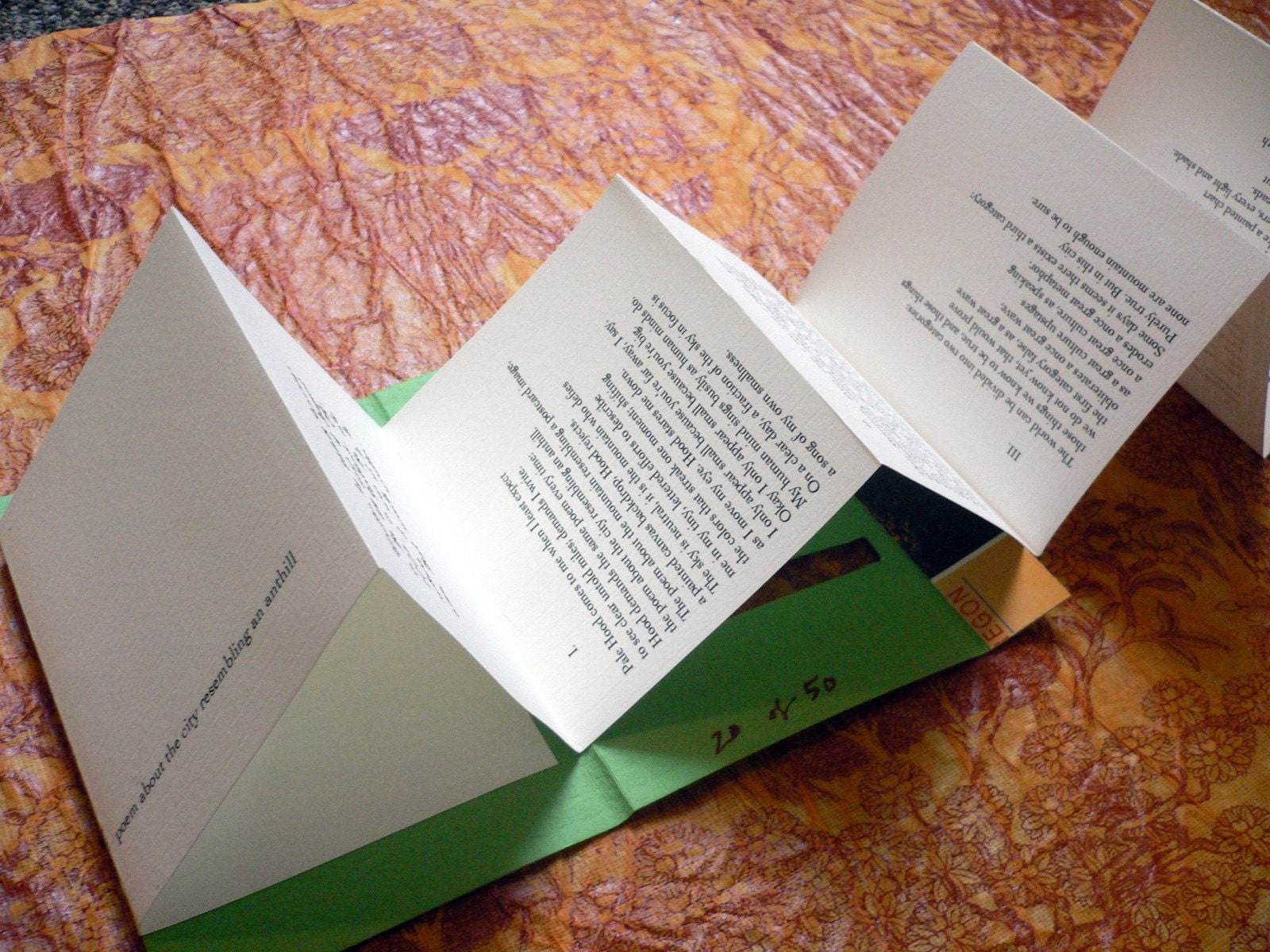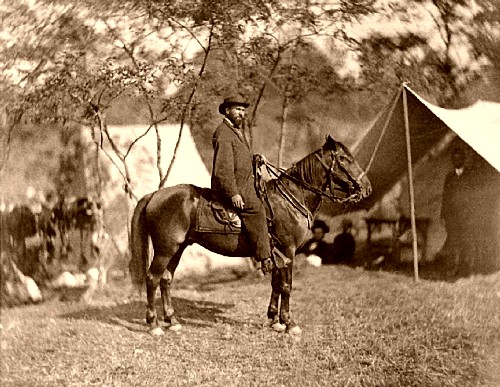
Regular readers remember that last week I blogged about the CUNY Chapbook Fair, and how I was going to be there promoting the Agriculture Reader / X-ing Books, and generally seeing what there was to be seen. Well, I saw it, and even brought some of it home.
I think my favorite things of all were two chapbooks that I traded for, both written and made by Elsbeth Pancrazi, who was working at the Small Anchor table because Jen Hyde is still in China. These weren’t SA books though, they were the work of Elsbeth’s own hand, and she traded me two practically greeting-card-sized pieces of wonder for one of my own poetry chapbooks. (I actually know Elsbeth a little bit, because we work together on the PEN/America editorial board, but I had not idea she was involved in the world of micro-presses, chapbooks, et al.)
The first book, “stars and thumbs,” is two series of prose blocks, printed in white on black. The book reads in both directions. “Stars” is illustrated with images borrowed from a book by the amateur astronomer, Ian Ridpath, and “Thumbs” is illustrated with photopies of the author’s own hands. I found one piece from “Stars and Thumbs” online here, but sadly there’s no illustration. I guess if you’re intrigued you’ll have to buy/find/trade for the real thing. As if that wasn’t enough, Elsbeth also gave me “poem about the city resembling an anthill,” which is smaller than your average postcard, but has a pint-size postcard of Oregon’s Mt. Hood attached to its front cover. The whole thing is a masterful piece of design, and the single poem contained within it isn’t exactly a sharp stick in the eye either. Here’s a link to one of Elsbeth’s other ongoing projects, “The Autobiography of Flapjack Sally,” and here’s another picture of the anthill book unfurled-

For more chapbook goodness, click through-
READ MORE >










 [NOTE: The
[NOTE: The 